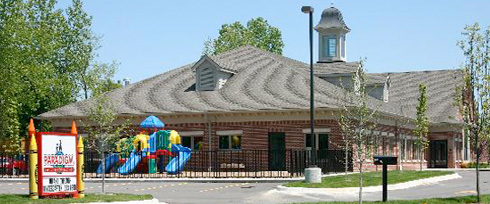
Michigan is prone to severe weather in the spring and preparing for it is important, especially with children!
Severe weather events—like hurricanes, tornadoes, or snowstorms—can be daunting, especially with children in tow. But how do you turn something so unpredictable into a controlled and manageable process for young ones? For parents, caregivers, and educators, the priority is keeping kids safe while helping them remain calm and prepared.
Severe weather events—like hurricanes, tornadoes, or snowstorms—can be daunting, especially with children in tow. But how do you turn something so unpredictable into a controlled and manageable process for young ones? For parents, caregivers, and educators, the priority is keeping kids safe while helping them remain calm and prepared.
Why Preparation Matters
Storms can strike with little notice. Taking the time to prepare ensures not only physical safety but emotional stability as well. Children often look to adults for reassurance, and being confident and ready can go a long way in setting their minds at ease.
Research also shows that kids who know what to expect during an emergency are better able to manage fear and adapt to the situation. Preparation doesn’t just protect them physically—it fosters resilience and emotional security.
But where do you start?
Create a Severe Weather Plan
Every family or organization should have a severe weather plan in place. This begins with understanding the risks specific to your area—for example:
- Tornadoes and severe thunderstorms in the Midwest
- Hurricanes along the coast
- Snowstorms or blizzards in northern regions
What to include in your plan:
- Establish Safe Spaces: Designate areas in your home or school that are safe during severe weather events, such as basements, interior rooms, or storm shelters.
- Emergency Contacts: Develop a list of emergency numbers and share it with everyone in your household or classroom.
- Meeting Points: Decide on a meeting location in case of evacuation.
- Drills and Practice: Practice your weather plan regularly. Familiarity minimizes panic during real events.
You should also take the time to make some kid-friendly emergency kits. Involving children in the creation of these kits is a great way to help them feel prepared.
Explaining Severe Weather to Kids
Severe weather can be confusing and frightening for children. How you communicate about it will have a big impact on how they respond.
Keep It Simple
Use clear, age-appropriate language. For instance, you could explain tornadoes by saying, “It’s a really strong wind that can break things, but we have a safe room to keep us protected.”
Address Their Concerns
Reassure kids that you are there to keep them safe. Answer their questions honestly but avoid unnecessary details that might increase their anxiety.
Turn it Into a Learning Opportunity
Explain the science behind weather phenomena. Simple experiments, like making a “tornado” in a bottle, can be a fun way to teach while distracting kids from fear.
Staying Calm During Severe Weather
During severe weather events, children are highly attuned to the emotional responses of adults. That’s why it’s essential to maintain a calm and reassuring demeanor—even if you feel anxious.
Tips for Staying Calm:
- Stick to the Plan: Remind everyone of the safety measures in place.
- Monitor Alerts Discreetly: Keep an eye on weather updates, but avoid overexposing children to the news, which can be sensationalized and alarming.
- Engage in Distractions: Encourage sing-alongs, storytelling, or games to pass the time in safe spaces.
Creating a sense of normalcy—even when circumstances feel anything but—can make a significant difference for children.
The aftermath of these storms is just as important as preparing for them. After experiencing extreme weather events, children might be uneasy and stressed. Addressing a child’s emotions and reassuring their safety is an important step to ensuring that young children can handle events like these in the future.
Paradigm always takes time to teach and prepare our students for severe weather during March. We will be observing Severe Weather Awareness during the week of March 20th. During this week we will be talking about the weather and safety. We encourage you to have these discussions at home with your children.








